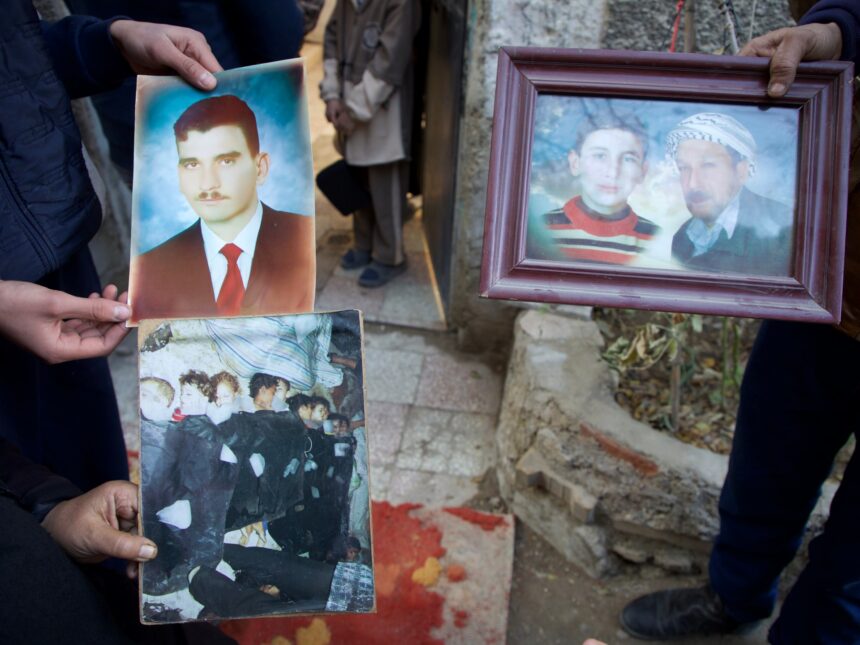In Eastern Ghouta, Syria, Amina Habya was wide awake when she heard screams outside her window in Zamalka on the night of August 21, 2013.
The regime of Bashar al-Assad had launched rockets filled with sarin gas at Zamalka, causing panic among the residents. Amina quickly grabbed a wet towel to cover her nose and rushed up to the fifth floor of her building with her daughters and sons-in-law. She knew that chemicals tend to settle closer to the ground, making the upper floors safer.
Fortunately, they were safe, but Amina later learned that her husband, son, daughter-in-law, and two grandchildren had all tragically suffocated to death. The devastation was indescribable.
Despite the horrors she endured, Amina still resides in Zamalka with her family, living in a modest apartment that remains one of the few intact buildings in the neighborhood. The others were destroyed by regime airstrikes during the war.
Amina shared a heart-wrenching photo with Al Jazeera, showing the lifeless bodies of eight children wrapped in black blankets after the sarin gas attack, including two of her grandchildren.
The use of chemical weapons by the al-Assad regime was one of the darkest aspects of the conflict, with countless innocent lives lost. Despite the regime’s claims, it was responsible for the vast majority of chemical weapon attacks during the war.
The memories of the attacks still haunt the residents of Eastern Ghouta, despite the relief of al-Assad’s departure in 2023. Amina, who once harbored no strong feelings towards al-Assad, now looks back with fear at the atrocities committed by his regime.
While justice may seem like a distant hope, many victims are still hungry for accountability. Amina’s daughter, Eman, expressed a desire to see al-Assad held responsible for his crimes, urging for action from the international community.
Although the road to justice may be long and challenging, the victims of the chemical attacks in Eastern Ghouta remain resolute in their quest for accountability. Amina’s daughter summed it up best, saying, “We just want our rights. Nothing less and nothing more.”
As they continue to push for justice, the scars of the chemical attacks serve as a harsh reminder of the brutal realities of war and the lasting impact it has on innocent lives.










